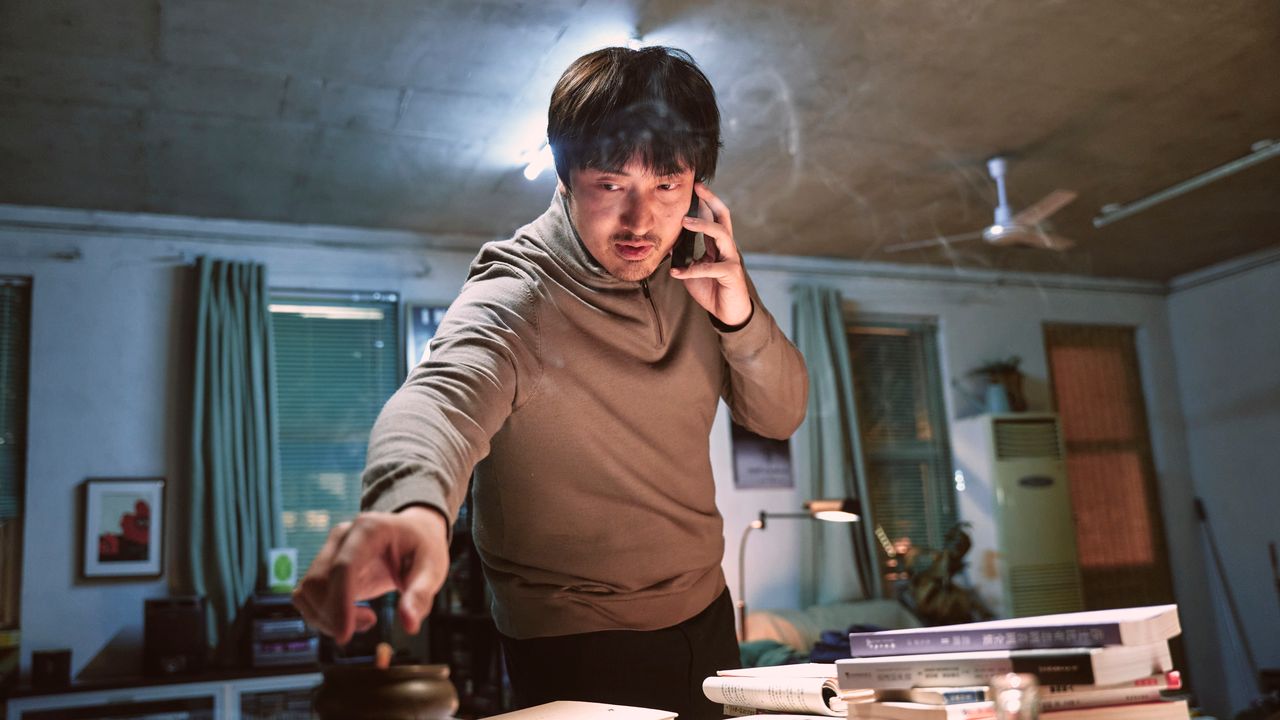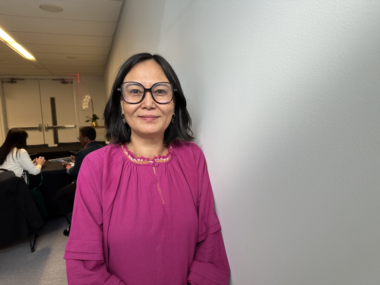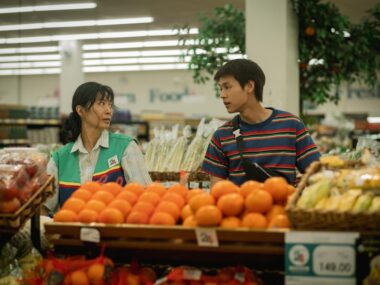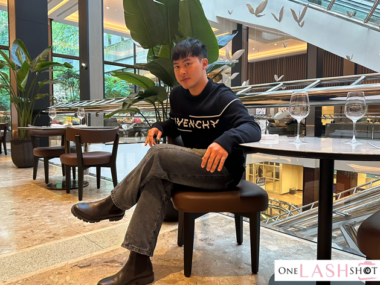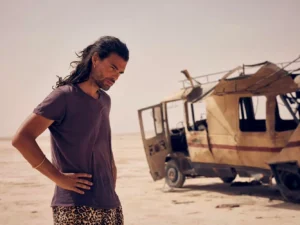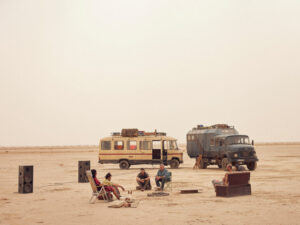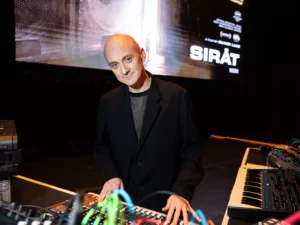Xu Lei launched his feature film career with Summer Detective, which won the Screenplay Award at the 2018 FIRST International Film Festival. In 2022, he directed the short film The Great Director, featuring two of China’s most iconic filmmakers: Ning Hao, known for his commercial hits, and Jia Zhangke, celebrated for his art-house masterpieces. In 2024, Xu Lei teamed up with Ning Hao to co-direct Hutong Cowboy, a comedy starring the legendary Ge You.
Green Wave, a Chinese comedy-drama written and directed by Xu Lei, unfolds a poignant, understated narrative. Instead of focusing on grand conflicts, it explores the subtle emotional distance that can quietly develop between father Lao Wei (Xu Chaoying) and his son (Eric Wang). The film delves into the delicate, everyday tensions that arise even in the closest of relationships. An intriguing layer of the film is that the actor Xu Chaoying, who plays the father, is actually Xu Lei’s father in real life. This adds a deeply personal dimension to the story, making the film feel even more authentic. The narrative, rich in generational contrasts, subtly emphasizes the quiet struggles that emerge when traditional and modern ways of thinking clash in father-son relationships.
After its triumph at China’s Pingyao International Film Festival, where it won both the Best Actor and Jury Awards, this offbeat comedy-drama made a splash as the opening film at the Far East Film Festival. It later made its North American debut at the New York Asian Film Festival, where it was nominated for the Uncaged Award, continuing its successful festival run.
One Lash Shot had the opportunity to talk openly with Director Xu Lei as he described his experience directing this film that dissects the realm of moral quandaries, generational gaps and familial relationships.

What inspired you to become a filmmaker?
I actually began my career as a screenwriter, not as a director. However, a few years ago, when my mom fell ill, I had to return to my hometown to care for her. During that time, there were certain things I couldn’t do, and I needed to find ways to stay occupied.
That’s when I decided to start developing a script, which eventually led me to creating independent films. My return to my hometown marked a turning point in my career, allowing me to transition from being a screenwriter to directing my first film. Now, my second feature is a continuation of that journey.
The title “Qian Ching si jin”means Promising Future—while the English title is ‘Green Wave’. Can you tell me what it symbolizes in the context of the film?
I believe these two titles, both the English and the Chinese ones, really capture the emotional and internal states of the two characters. For example, at one point, the father buys a calligraphy piece as a gift for his son, hoping it will guide him and wishing him success moving forward. On the other hand, the son doesn’t find calligraphy, but instead encounters a traffic sign—a green wave—which symbolizes an auspicious sign, suggesting that his journey ahead will be smooth and full of green lights.
To me, these two elements—the father and son, the two titles—one in English and one in Chinese, really resonate with each other and reinforce the narrative. That’s why there are two different titles.
You once quoted an old Chinese saying, “There cannot be two tigers on one mountain”(一山不容二虎), when speaking with the media. Interestingly, you cast your father, Xu Chaoying, in the lead role, which blurs the line between fiction and reality. What inspired that decision?
Contrary to the saying that you can’t have two tigers on the same mountain, casting my father in the lead role actually allowed me to flip that concept. As the director, I took on the role of authority and control on set. Now, he, as the actor, had to follow my direction, which was a unique dynamic where I was in charge.

This film touches on youth, technology, and dreams. What are you trying to say about generational divides in modern China and how the old and new interact?
For me, when you look at the two characters—the father and the son—the father is a farmer in a rural area, while the son has left that life for Beijing, living in a more postmodern, urban environment. This contrast highlights how society has evolved, from an agricultural past to a modern, or even postmodern, “information era.”
It’s somewhat similar to Japan, where people have become more individualistic, compared to the collectivist, agricultural society of the past. I never approached the script with a historical lens, but this shift in society is part of the reality we live in, and it naturally found its way into the film.
Do you think a writer should focus solely on whether their work is gaining momentum, becoming popular, or avoiding bad reviews? What do you believe is the right approach for a writer?
The short answer is yes, but I think it’s a difficult goal to achieve. On one hand, it’s important to maintain momentum and receive positive feedback, but on the other hand, if that pressure becomes too heavy, it can actually hinder a writer’s progress.
I believe it’s about finding balance—carrying that “baggage” of expectations, but not allowing it to overwhelm you. It’s important not to push yourself to write things that are beyond your capabilities.
How do you define your goals, given that we’re often told nothing is impossible?
I can only speak from my own experience, having made just two films so far. I tend to have grand ideas and ideals about what the film should be, but by the end, the final product often doesn’t quite meet my expectations. That’s where I am right now as a writer and screenwriter, though it doesn’t mean my perspective won’t change in the future.
I don’t watch my own films because, every time I do, I only see the flaws or things I feel weren’t done right. I’m very critical of my work. However, when it comes to commercials and short films I’ve directed, I do watch those. I didn’t start those projects with grand ambitions, so I feel like there’s always room for improvement, and I’m less disappointed by them.
Is Hemingway one of your favorite authors? And, as he said, do you believe that a man can be destroyed, but not defeated?
I wouldn’t say he’s my favorite writer, but I do appreciate him as a writer. The main reason his work is often used as a motif is because he’s so well-known, especially in China.
Is there a particular scene in the film that you shot—though I know you don’t watch your own work—that resonated with you or one that you really identified with?
The scene where the father realizes he’s been scammed, while lying on the couch and the son is in the background, putting together the bed, really resonated with me. The juxtaposition of those two actions happening simultaneously stood out.
For me, it’s a scene that’s both comedic and tragic. It mixes emotions—there’s humor, but also a deep sadness, even melodrama. I think it captures a good balance between these contrasting feelings.
If you had to describe the movie’s theme in one word, what would it be?
This is ‘life’.
What’s next for you?
For my next project, I’m thinking of making a sci-fi film. In this future, I imagine that film has evolved into an intangible cultural heritage—something of immense national value and treasure.
[Author’s Note: 谢谢!我期待观看 <The Peacemaker>]
